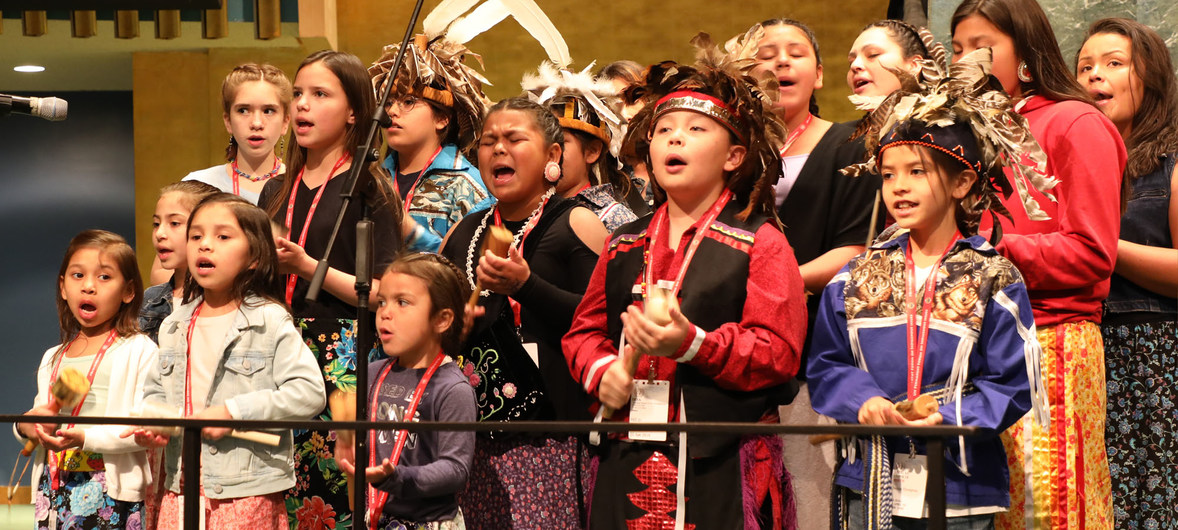
New York City: Traditional knowledge must be protected, preserved and encouraged, a number of expert speakers stated at the 18th session of the UN Permanent Forum on Indigenous Issues.
The theme of this year’s forum “Indigenous Peoples’ Traditional Knowledge: Generation, transmission and protection”allowed participants to share innovations and practices developed in indigenous communities over centuries and millennia, Permanent Forum Chair Anne Nuorgam said.
“We need to ensure that our educational practices, languages, environmental conservation and management is acknowledged and respected globally, not only by governments, but by all peoples,” she emphasized.
Traditional knowledge is transmitted between generations through stories, songs, dances, carvings, paintings and performances. Calling for financial and technical support from Member States and the UN, Nuorgam encouraged “all of us make sure our children and our youth are connected to their indigenous community and their culture, which is inextricably linked to their lands, territories and natural resources.”
María Fernanda Espinosa, General Assembly President, stated that traditional knowledge occupies a pivotal place in the range of actions needed to mitigate climate change. Transferring this information across generations is vital, as is harnessing the potential of youth and women. Highlighting the importance of preserving languages, she pointed out that knowledge accumulated over thousands of years on medicine, meteorology, agriculture and other areas is at risk of forever disappearing. In preparing for the great challenges ahead, Espinosa said efforts must include fostering a better understanding of traditional knowledge and finding ways to strengthen indigenous peoples’ voices within the UN.
Valentin Rybakov, Vice-President of the Economic and Social Council, called the forum’s 2019 theme is timely considering the vast role of indigenous knowledge in sustainable development. However, misconceptions often categorise traditional activities as uninformed and damaging to the environment when, in fact, indigenous peoples’ knowledge of their lands includes a vast array of successful practices.
Royal Johan Kxao UI/O/OO, Deputy Minister for Marginalized Communities of Namibia, said that although his country’s constitution ensures multiple languages could be used in an official capacity, three groups were left on the margins. The challenge, he said, remains in providing education to these groups in their indigenous language at the foundational levels.
“For this reason, you find many children not able to speak their language,” he added.
Les Malenzer, Permanent Forum member from Australia, stressed the need to dedicate and commit resources to preserve indigenous languages. “It won’t just happen by will alone,” he said.